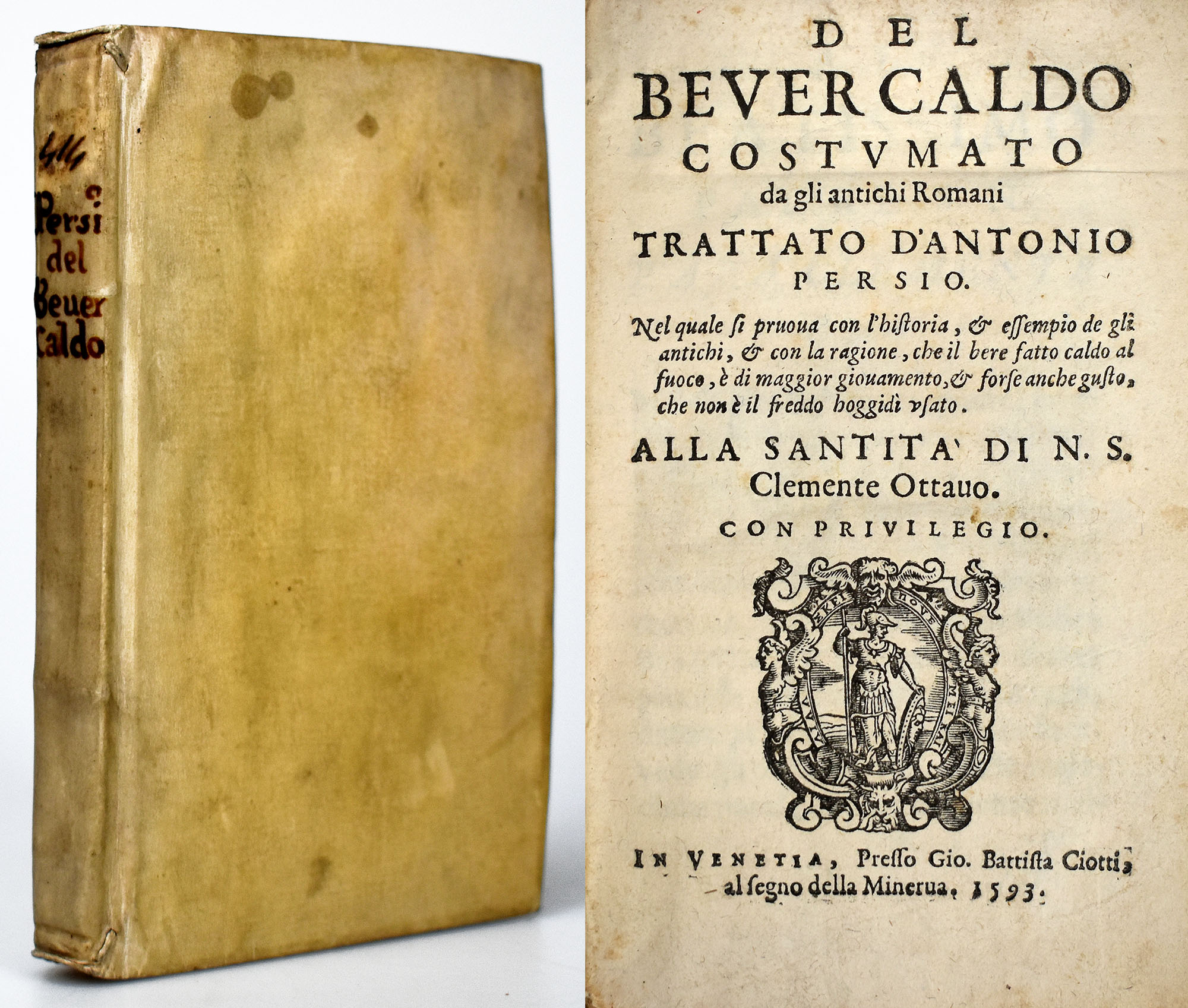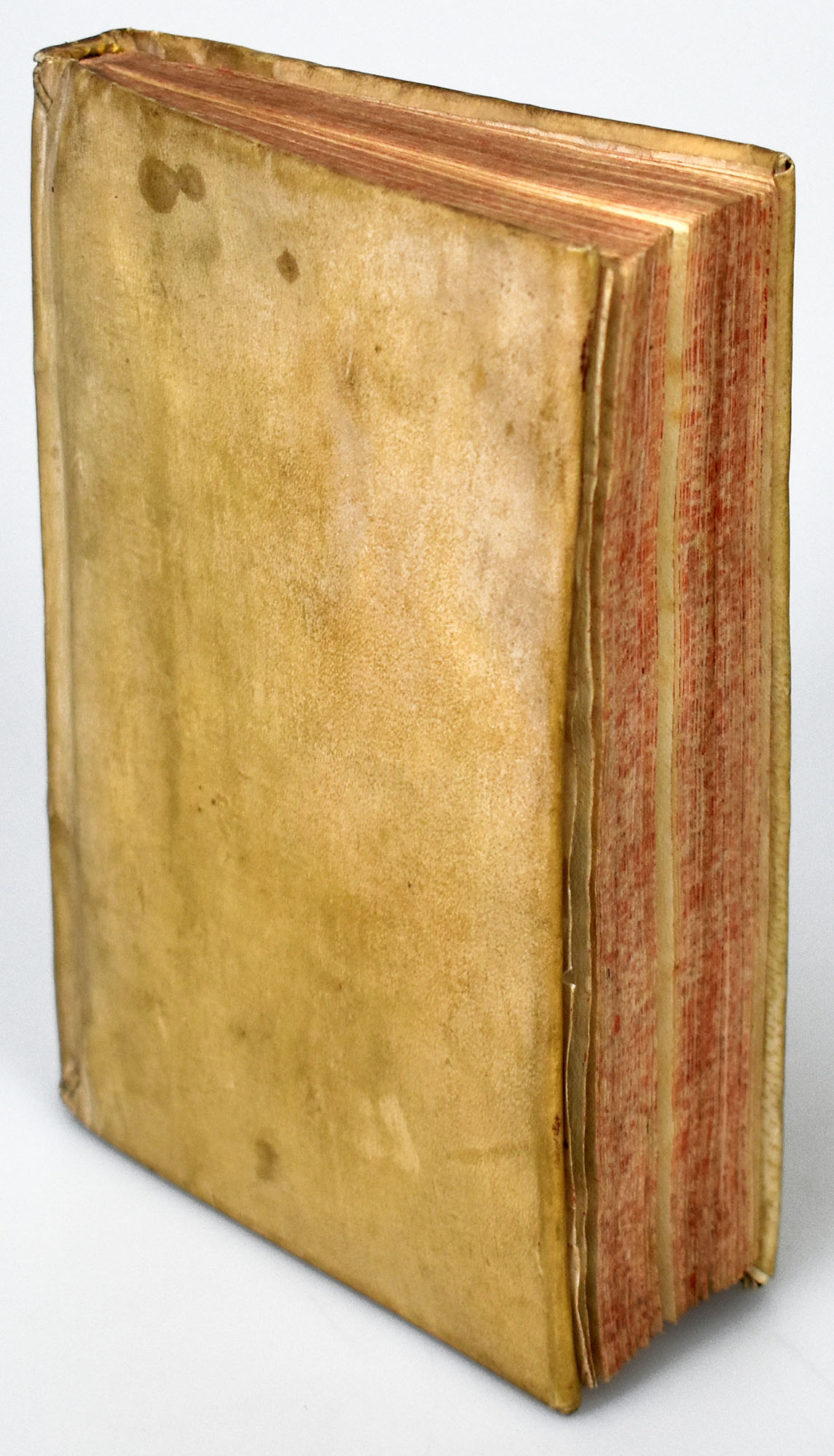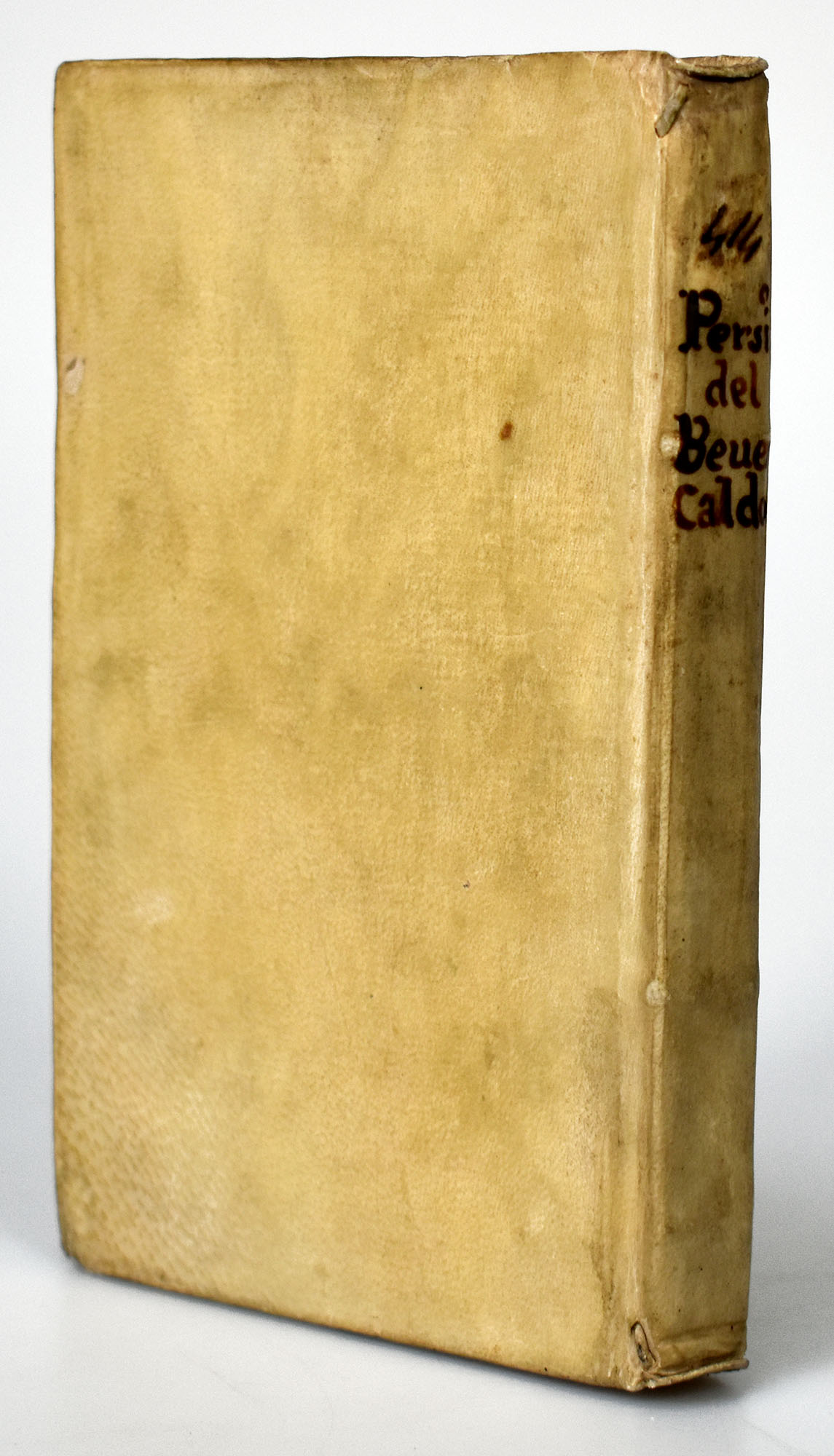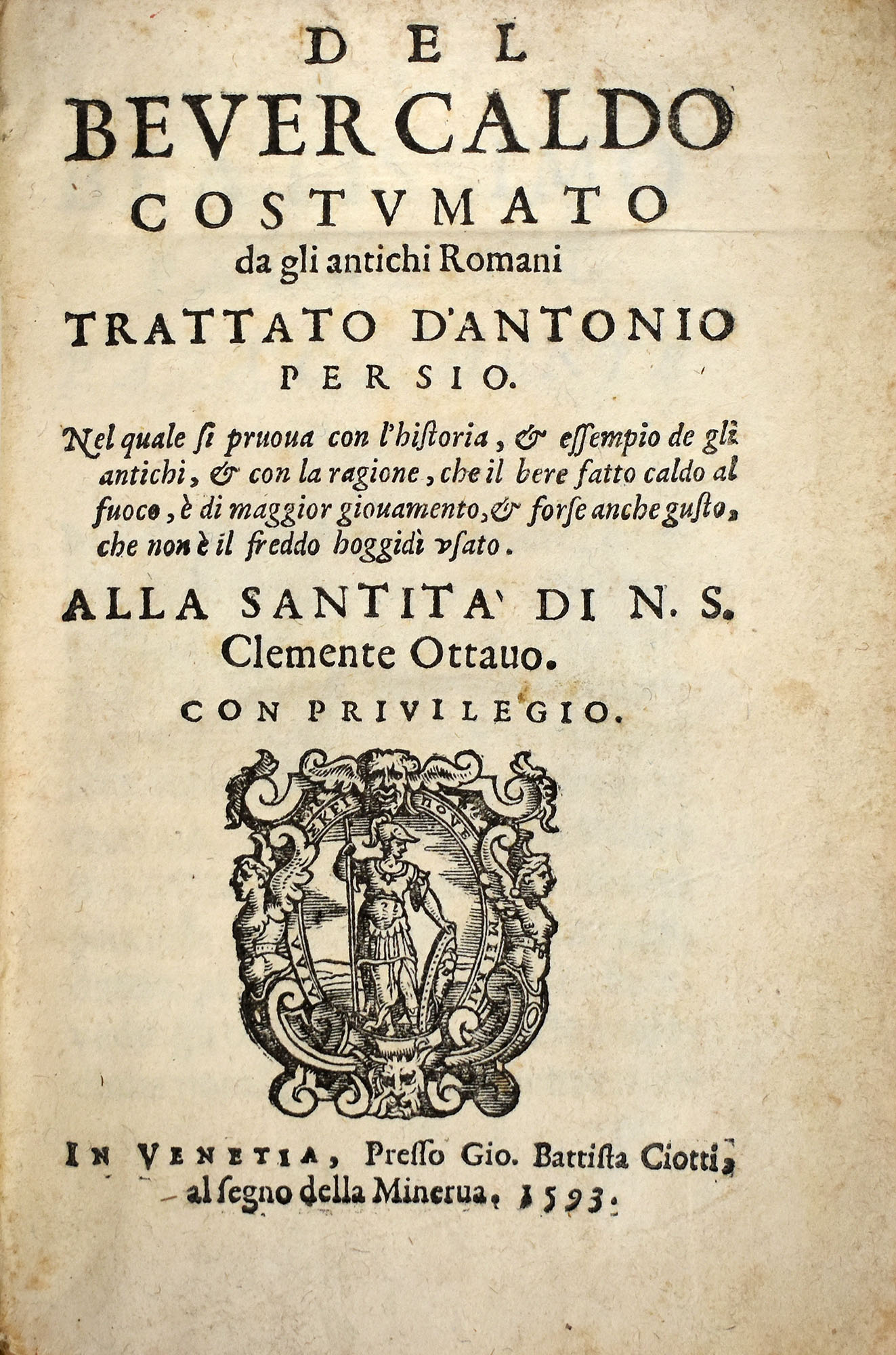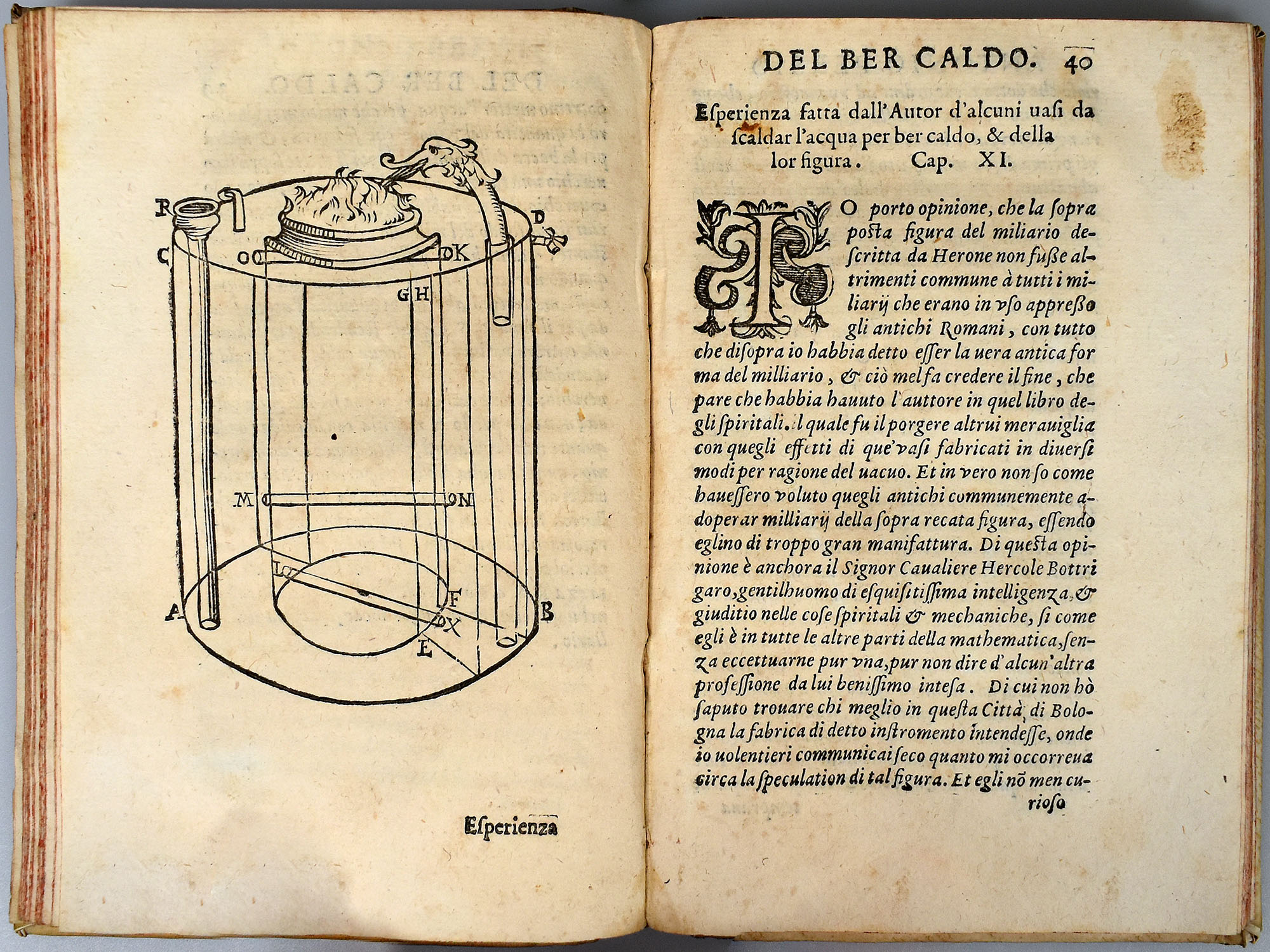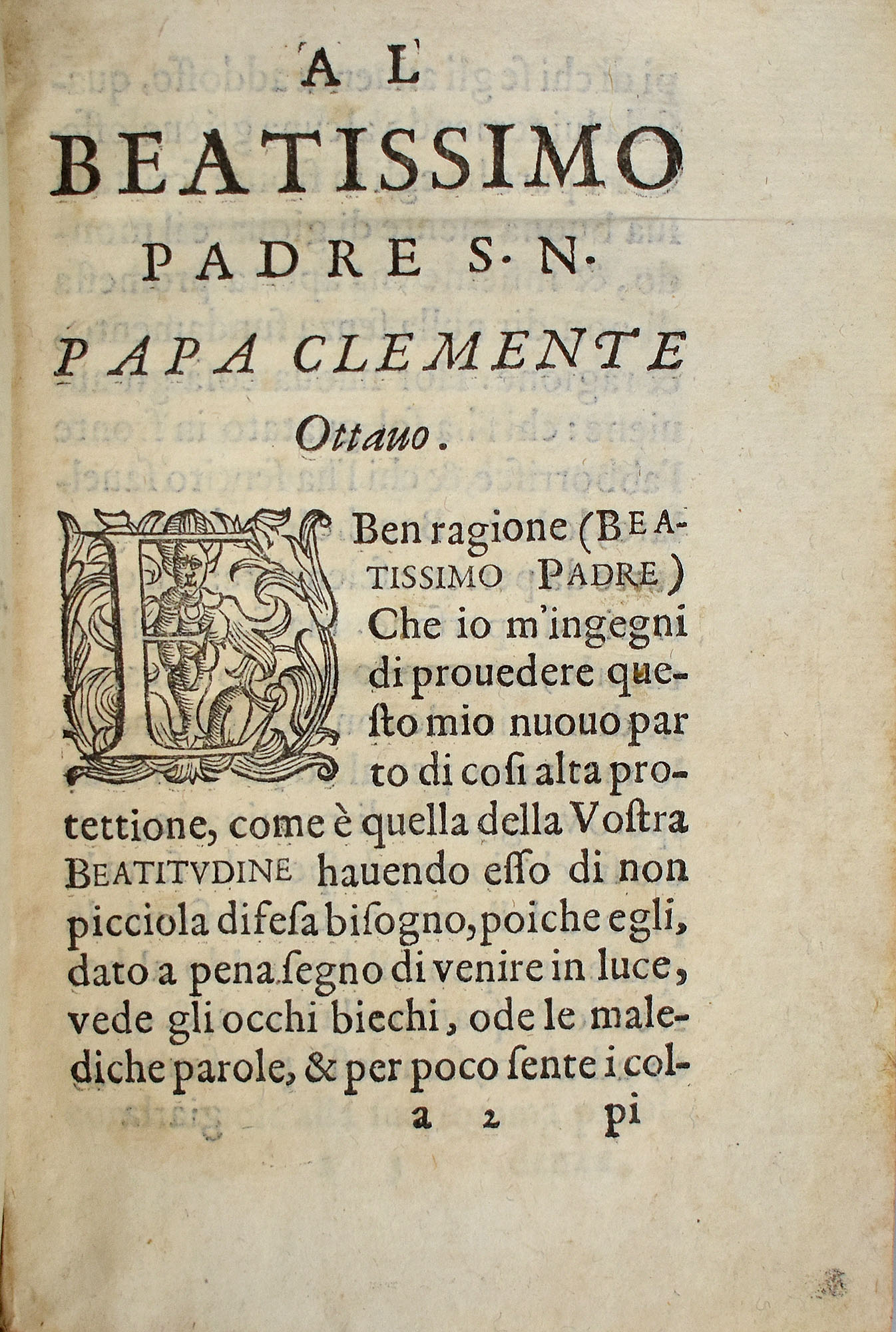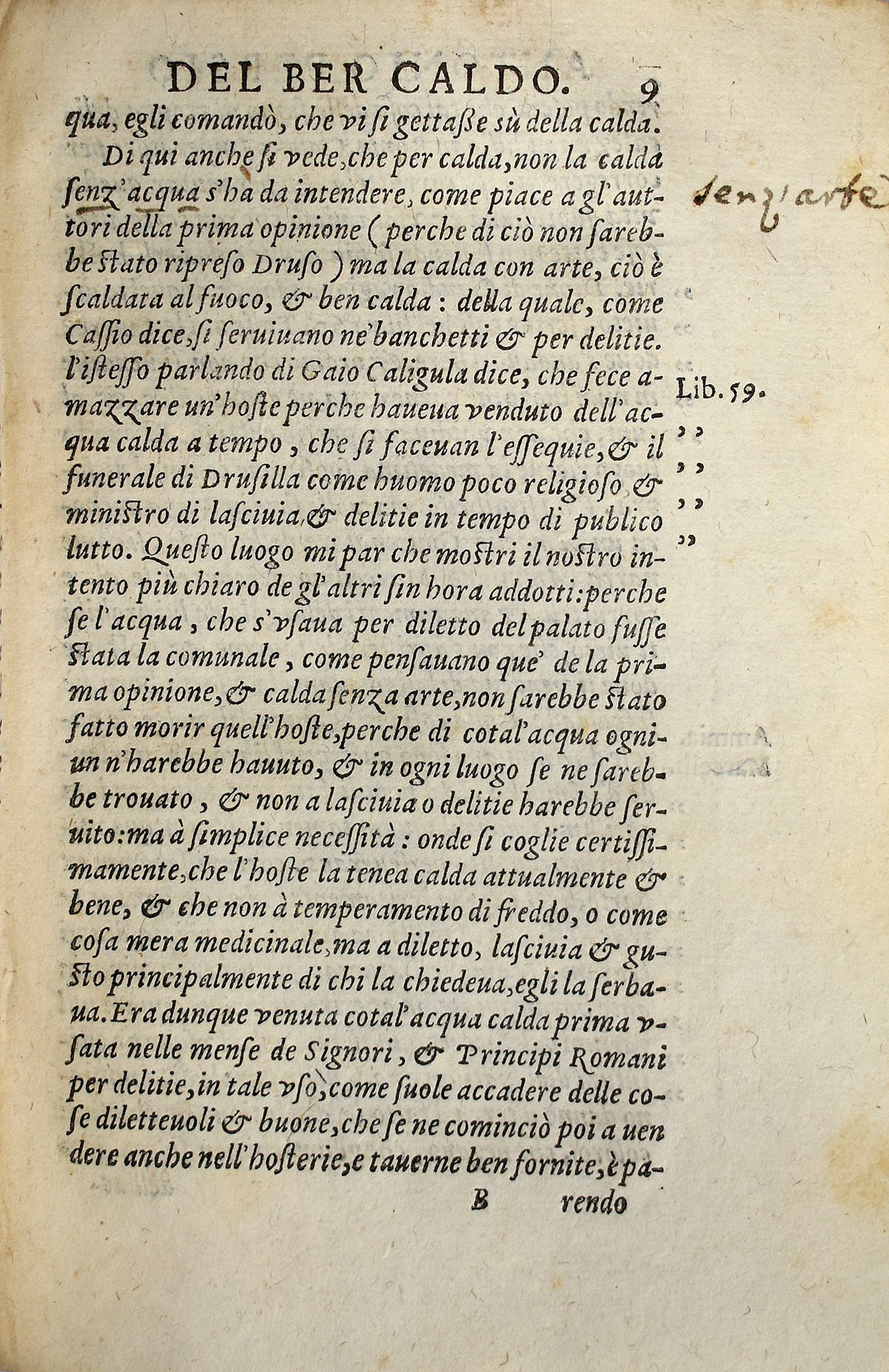Persio, Del Bever Caldo Costumato da gli antichi Romani. Venedig, 1593
€ 1.600,--
Persio, Antonio: Del Bever Caldo Costumato da gli antichi Romani. Trattato. Nel quale si pruova con l’historia, & essempio de gli antichi, & con la ragione, che il bere fatto caldo al fuoco, è di maggior giovamento, & forse anche gusto, che non è il freddo hoggidì usato. Venetia [Venedig], Verlag Battista Ciotti, 1593. Klein-8°. 17 x 11 cm. 8 Baltt, 86 Seiten, 8 Blatt. Pergamentband der Zeit mit handbetiteltem Rücken und rotem Sprengschnitt.
Erste Ausgabe. Italienischsprachige Ausgabe. Bitting 366. Vicaire 677. Mit Titelvignette in Holzschnitt, einem blattgroßen Holzschnitt im Text (Apparat zum Erhitzen) und einem Textholzschnitt sowie Holzschnittinitialen. Interessante Monographie durch Antonio Persio zur medizinischen Verwendung erwärmter Getränke in Anlehnung an die antike, römische Sitte. Zwar war es in der Renaissance aufgegriffener, altrömischer Usus, Getränke mit Eiswürfeln zu kühlen. Die medizinische Konsequenz daraus war allerdings umstritten und Persio bemühte sich seinerseits um die Behauptung einer Tradition des Genusses heißer Getränke im antiken Rom, die zu präferieren seien. Der italienische Philosoph platonischer Schule und überzeugter Schüler von Bernardino Telesio war vorher durch seine naturphilosophischen Arbeiten, insbesondere zum menschlichen Geist, der Seele und Genie/Ingenium in Erscheinung getreten. Das vorliegende Werk, ist als kongenial zum vorhergeganenen zu verstehen. Vorangestellt sind lateinische und altgriechische Epigramme in Huldigung Antonio Persios, verfasst durch den Veroneser Arzt Andrea Chiocco, der wenig später mit dem eben noch Gelobten über seinen öffentlichen Angriff der Lehren Telesios in einen feurigen Disput geriet. Später attackierte Chiocco sogar die vorliegende Publikation in einem Traktat, das er bezeichnenderweise spiegelnd „Del bever freddo“ nannte (vgl. Firpo: Richerche campanelliane, p. 25 f.), welches jedoch nie publiziert wurde. Seitens Persio handelt es sich bei der vorliegenden um die letzte Publikation, die in gedruckter Form noch während seiner Lebenszeit erschienen war. Einband leicht bestoßen und gering fleckig, fliegendes Blatt mit mehrzeiliger, alter Notiz in Tinte, Seiten nur leicht gebräunt und stellenweise blass stockfleckig, 3 Blatt mit kurzen, handschriftlichen Marginialen sowie eine Seite mit mehrzeiliger Notiz im Fußsteg. Im Ganzen sehr gutes Exemplar. First edition. Italian language edition. Vellum binding of the times with handwritten title on spine. With woodcut title vignette, two woodcut figures (one full-page woodcut showing an apparatus to heat beverages and a smaller one within the text) as well as woodcut initials. Interesting monograph by Antonio Persio concerning the medical use of heated beverages based on the corresponding ancient Roman custom. It was a revived Roman fashion of the renaissance to consume iced beverages. The medical consequences to that were however unclear and were controversially discussed. Persios attempt was to emphasize an ancient Roman habit to drink heated beverages, which were to be preferred, as he stated. The Italian philosopher and dedicated disciple of Bernardino Telesio had formerly presented himself in front of the public with his natural philosophical works, especially those revealing the nature of the human spirit, soul and genius/ingenium. The treatise at hand is to be understood as congenial to his former works. In it can be found two introductory epigrams praising Persio in Latin and ancient Greek by the Veronese physician Andrea Chiocco. Not much later this same doctor publicly questioned Telesio’s teachings that were upheld amongst others by corresponding works of Persio, which caused a furious dispute between the both of them. Chiocco even attacked the work at hand later on with his own treatise, „Del bever freddo“ (Firpo: Richerche campanelliane, p. 25 f.). It never was published though. On the part of Persio, the work at hand was the last treatise that went into print during his lifetime. Binding a little bumped and stained, flyleaf with multilined old inscription in ink, pages only slightly darkened and partially with light foxing, 3 sheets with short, handwritten marginals and one page’s bottom margin with multilined inscription. Altogether fine copy.
- Bestellnummer: 63390CB
- Kategorie: Bücher: Geisteswissenschaften: Philosophie
- Tags: Getränke / beverages · italienische Literatur / italian literature · Naturphilosophie / natural philosophie
